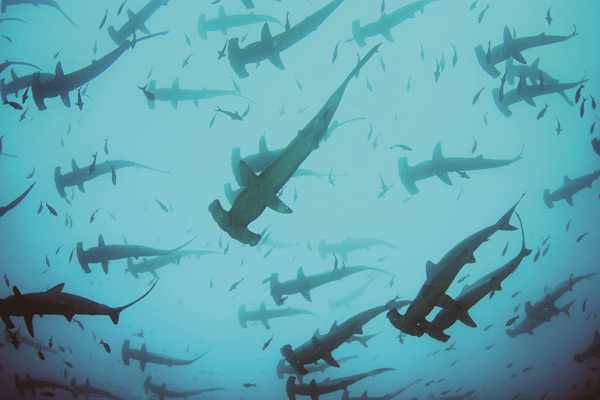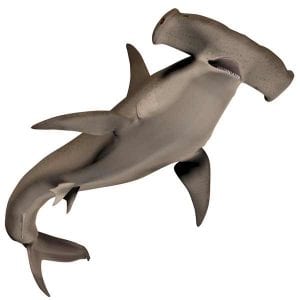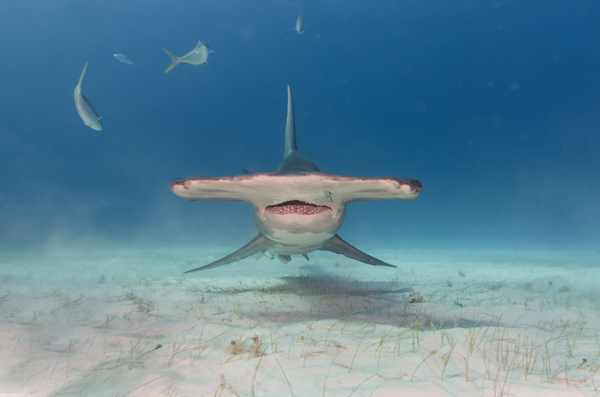
Sea Shepherd – Without the Blue, There Can Be No Green
In the August Howler article “Behind the Green Mask,” Captain Paul Watson, founding president and executive director of the Sea Shepherd Conservation Society, shared his perspective on Costa Rica’s facade of marine eco-friendliness. The grim plight of sharks in this country should send the same hard-hitting reminder: without the blue, there can be no green.
 Costa Rica’s Isla del Coco was the inspiration for the lush tropical island in the movie Jurassic Park. It’s a place of unparalleled beauty above and below the surface, one of Costa Rica’s greatest assets. Streaked with waterfalls and swaying palms, the islands are supposed to be a protected area for inhabitants. But sadly, little protection, if any, actually exists.
Costa Rica’s Isla del Coco was the inspiration for the lush tropical island in the movie Jurassic Park. It’s a place of unparalleled beauty above and below the surface, one of Costa Rica’s greatest assets. Streaked with waterfalls and swaying palms, the islands are supposed to be a protected area for inhabitants. But sadly, little protection, if any, actually exists.
The shark population here has been in serious decline for years due to illegal longlining by poachers. Resident park rangers, who witness the incredible biodiversity on a daily basis, desperately want proper protection with adequately funded and equipped boat patrols. Yet, lack of government will seems to allow the continued presence of poachers inside the park.
Below the surface, shark species have a pecking order for endangerment. Oceanic whitetips and silvertips are the most vulnerable, being victims of their own speed when reacting to a baited line. These sharks have all but disappeared from the Cocos islands in recent years. The more cautious hammerhead sharks, although endangered, remain relatively abundant. However, with the United Nations predicting the death of our oceans by the year 2048, and current fishing practices being unsustainable, it won’t be long before the hammerhead shark follows its cousins into obscurity and eventual extinction.
The Cocos islands are vital to the survival of our oceans. If respected and left alone with the protection they deserve, the surrounding waters could be a sustainable source of fish for years to come. If not, future generations will ask why their parents did not stop the carnage when they had a chance.
Too often, the excuse is, “Fishermen need to feed their families.” Instead, we should be asking, “What about the next generation of fishermen’s families? What will they eat if we continue down this self-destructive path of unsustainable, unpoliced fishing?”
If poachers and government could only understand that a properly patrolled park works like a boiling pot. The excess spills over so the patrolled area’s fish know no borders.
Hundreds of miles away from the Cocos open waters, hammerhead sharks along Costa Rica’s shallow coastline shores may be facing a more dire threat to survival. The quiet mangroves lining these coasts are where pregnant females release their pups. Year after year, local fishermen have been netting off the shark nurseries before taking and killing most of the babies. The result is a rapid decline in hammerheads surviving to sexual maturity, which for females can take 15 years.
Shark finning remains another key endangerment factor. It’s a violent and wasteful practice that continues unabated in Costa Rica. Sharks suffer the removal of their fins while still alive before being hurled back in the water to die.
As a haven for shark finners, Puntarenas is where many of the largest private docks are located, along with storage warehouses. Just down the road are the offices of the Costa Rican Institute of Fisheries and Aquaculture (INCOPESCA). Despite its mandate to regulate and promote sustainable fishing on the advice of scientific authorities, this autonomous government agency is motivated less by ocean protection than protecting the profit interests of its board members.
While Costa Rica exports shark fins to other countries, domestic shark meat remains here for cheap sales to restaurants, bars and unsuspecting patrons, typically served as ceviche. Big-name supermarkets are implicated in retail consumer deception through product mislabeling. This disregards the known human health risks of shark meat containing high levels of mercury and other toxic compounds.
The shortsightedness of greed can never be understated by Captain Watson, who has warned, “If the oceans die, we all die.”

